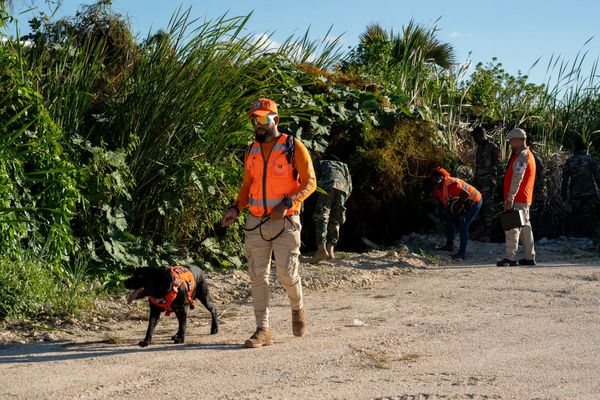
“I couldn’t sleep that night. I kept getting flashes of the girl who was shot…the moment I dozed off, I started hearing gunshots and whistles. Just a few hours ago when we were walking, she was there, alive and well, trying to protest for her people. She died moments later.”
Kalyan Deb can’t get the events that transpired on the night of May 4 out of his mind. The 34-year-old EastMojo reporter was in Manipur’s Churachandpur with his colleague Mukat Medhi when four people were shot dead while security forces were carrying out evacuation of Meiteis in the area.
At least 54 people have been killed and over 230 injured in violence following a clash between members of the Kuki and Meitei tribes after a solidarity march – held by the All Tribal Students’ Union of Manipur against the Meitei community’s demand for Scheduled Tribe status on May 3.
Despite the suspension of mobile and internet services, restrictions on movement, and frequent flare-ups, journalists continued to report on the conflict and its aftermath, but not without their share of challenges.
Many of them told Newslaundry about how they protected themselves from the mob, how they managed to publish a story without internet, and how they moved about amid violence.
‘Would chase us, ask us to stop recording’
Documenting the violence was challenging for journalists, who said that people got “aggressive” when they saw their visuals being recorded.
“As soon as we took out our phones to record what was happening, people would chase us and ask us to stop shooting,” said Kalyan Deb. “Nobody wanted to be seen on videos. We were accompanied by some locals who had to intervene at times and say that we were just reporting on the situation. We had to make people understand that we aren’t trying to twist the story but reporting about the concerns of the people. We had to stop sometimes; a mob is pretty unpredictable.”
Karishma Hasnat, special correspondent with the Print in the Northeast, who had reached Manipur on April 29 after noticing signs of unrest, said, “When people are moving about with sticks and weapons, you cannot do much. When the situation takes a turn for the worse, when it’s a mob, it is in a frenzied state. They lose their sense of reasoning. You don’t know if people will understand who you are. In the heat of the moment, people don’t think about the trauma they are causing others. However, there are a few in the crowd who are willing to listen.”
Amid arson, many journalists ventured out without protective gears. While local journalist unions provided jackets with ‘press’ written on them, which helps in reporting from conflict zones – they were available in limited numbers and were not bulletproof. “We are going at our own risk,” said Rinku Khumukcham, editor of Imphal Times.
Arindam Das, journalist at Northeast Live, also said that he did not have any protective gear while reporting. “The main challenge is the security. A mob is a mob, they don’t identify journalists. Especially when there is a clash between two communities, you’re always a possible target.”
Connectivity problems
Due to internet curbs, most of the journalists’ reports would be published days after the incident.
One of Deb’s reports was about a human chain formed by the women of the Kuki community to protect women of the Meitei community – a story which received both love and hate on social media.
Meanwhile, Hasnat said that she was able to file her copy before the internet was cut off, but she had to send updates of the report to her office via phone calls and text messages.
Khumukcham, meanwhile, said that his team would head to the Directorate of Information and Public Relations in Imphal to file their copies and send updates – as there was a WiFi connection there. “The internet cut-off was one of the biggest challenges as it has become an essential commodity for us reporters.”
Mainstream media likes to ‘oversimplify’
In the aftermath of the violence, several journalists and media houses have been accused of picking sides and favouring one community over another.
In an editorial published on May 9, Karma Paljor, editor-in-chief of EastMojo.com addressed the criticism the portal had received. “Judge us on what we do every day, not by cherry-picking stories that go against your narrative,” Paljor wrote. “In response to all the hate that we have received during this time, we want you to understand that during a conflict, we have every right to protect our correspondents and employees.”
Paljor was referring to his many decisions to ensure the safety of his organisation’s correspondents. He sent Manipur correspondent, Vangamla Salle, back to her home in Ukhrul instead of the streets in Imphal for safety reasons. Paljor said that while Salle, a Tangkhul Naga, was not threatened directly, she realised the danger to her family when almost everyone around her, including fellow Nagas started vacating their houses to go home.
“I sacrificed my Imphal asset for her safety and her child,” Paljor told Newslaundry. The correspondent, Salle, has a two-year-old daughter. “I am not going to jeopardise a mother’s life under any circumstances. As an editor, what is of utmost importance is that my reporters on ground are safe. I have covered conflict and natural disasters and understand the kind of impact it will have on mental health.”
While local outfits are treading with caution in their reportage, the mainstream media has been accused of portraying the issue as a religious conflict rather than an ethnic flare-up.
In a joint statement on May 8, three local journalist organisations, All Manipur Working Journalist Union, Editors Guild Manipur, and Manipur Hill Journalists Union appealed to the national media and those abroad to provide balanced coverage of the situation.
They said that they had received feedback from citizens about “unbalanced reporting” by the media, especially national and international, who have either sent representatives to Manipur or sourced information from there.
“The present conflict in Manipur is complex and simply reducing it to Hindu vs Christian, or tribal vs non-tribal or Meitei will bring irreparable damage to the age-old relationship that people from the valley enjoyed with those from the surrounding hills."
They urged journalists to “play the role of peacemaker instead of troublemaker,” and asked them to “remember the role of certain media in Rawanda that sparked an unwanted genocide decades ago.”
The Press Council of India and the Union Ministry of Information and Broadcasting have earlier highlighted the need for print and television media to ensure that content does not incite disharmony, animosity, conflict, hatred or ill will between different religious, racial, linguistic groups, castes or communities.
“The problem with the mainstream media and their reporters who come on ground is that they like to oversimplify,” said Paljor. “It is very easy to explain it in a religious context rather than understand the underlying factors that have been there for a long time. There have been insecurities in the tribes since around 50 years that were never resolved. When you parachute in, the people who assist you initially become your point of contact. “
However, local journalists said that despite caution, they got “picked” by both sides for their reportage.
“We did not report on how many people were killed from the Kuki or Meitei communities. We avoided reporting in a manner that would add more fuel to the fire. It’s like walking a tightrope. We got picked by both sides,” said Paojel Chaoba, executive editor of Frontier Manipur. “The government cut off the internet as a cautionary measure but because of that. We couldn’t get updates. It made it hard to differentiate between misinformation and disinformation,” he said.
“When there is anything that may fuel anger to the people, it is our responsibility to be sensitive. We have seen (communal) clashes since 1993 but these are one of the worst ones,” said Rinku Khumukcham.
Newslaundry is a reader-supported, ad-free, independent news outlet based out of New Delhi. Support their journalism, here.







